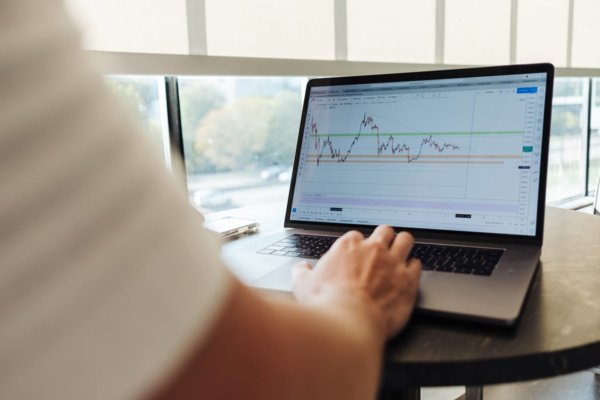How To Plan For Variable And Periodic Expenses - What You Need To Know
If you have variable expenses that you don’t have to pay on a monthly basis, and you’re unprepared for them, it can start you on a downward financial spiral.
If you’ve been hit with this already, you’ll know exactly what I’m talking about. Bills become a juggling act, and as the saying goes, “you have to rob Peter to pay Paul”. And you could start moving money from one place to another and not really get anywhere.
However, this does not have to be the case for you. All you need is a plan.
In this article, we’re going to cover fixed, variable and periodic expenses, and how you can plan ahead to pay them. By the end of the article, you will be in a better position going forward.
And without further ado, let’s get straight into it.
If you’re not too sure about what these different terms mean, don’t worry, I’ll start with the basics.
Also read: How To Calculate Retained Earnings?
Fixed Expenses
Fixed expenses are basically the bills that remain the same month to month for at least a year. (Although these can go up every year, usually by a small increase.)
Examples of fixed expenses may include such things as rent or mortgage payments, insurance premiums, and car HP payments, and so on.

Variable Expenses
Sometimes there are expenses where the value can change from month to month. These are called variable expenses.
Variable expenses are quite a large category of expenses because they can include your grocery tab, dining and takeout expenses, any money spent on clothes, gas for the car, and so on.
Sometimes utility bills can be classed as a variable expense (more on this later).
Also read: How To Apply For A Ppp Loan - The Full Guide
Periodic Expenses
Periodic expenses are basically all of the remaining expenses.
Typical examples of periodic expenses include annual ones such as vehicle registration, and entertainment or online subscriptions.
But these certainly aren’t the only periodic expenses that can crop up.
For example, if one of your household appliances breaks down, you might want to repair or replace it, and the same goes for your vehicle.
And of course there could be gifting based around holidays, or other costly celebrations such as weddings, baby showers, birthdays, and more.
You may also want to pay for occasional travel and vacations.
Also read: Get The Insights - How To Get A Business Loan With No Sweats!

How To Plan For Fixed, Variable And Periodic Expenses
Here are some of the different ways that you can be ready for all of your expenses.
Set Up Suitable Savings Accounts
Emergency Funds
My number one tip for preparing for any periodic expenses is to set up a savings account, especially as a fund for any unexpected emergencies that could crop up
And since it is an emergency fund, this fund should allow instant access to the account holder.
If you are living as a couple, you may even wish to set the account up so that either of you can access it as soon as it is needed, in order to avoid any pesky delays.
Funds For Other Periodic Expenses
You can also use savings accounts for the purpose of preparing for periodic expenses that are not classed as emergencies.
For example, gift giving over the holidays is not what most people would consider an emergency. However, it is often something that people are prepared to contribute their money to, and sometimes a considerable amount of money.
(You may even find some special savings clubs centered around saving for the Christmas holidays.)
You can also use savings accounts to pay for travel and vacations.
Also read: The 8 Amazing Passive Income Ideas With Little Money
Sign Up For An “Equalizer” Plan For Your Utilities
There are several utility providers that can offer you an “equalizer” plan that will allow you to pay a fixed amount every month, based on your average use of the utilities. Signing up to such a plan is something worth considering.
Use A Dedicated App
There are several apps out there that you can take advantage of that can predict with some accuracy just how much your variable bills are going to come to when they crop up.
Such apps tend to be available for both Android and iOS operating systems, and they can be securely linked to your various bank accounts, so that you don’t have to enter any data manually.
See A Credit Counselor
If you don’t find a suitable app that you like, or just don’t want to use one, you can always speak to a credit counselor who would be more than happy to do all the calculations for you so that you don’t have to.
Seeing a credit counselor is normally free of charge, and you should have no trouble finding one online.
Also read: 8 Personal Finance Apps For Your Better Future

Get A Calculator Out
And, of course, there’s always the (really) old-fashioned way of budgeting - using pen and paper, or maybe even a dedicated budget plan.
Such budget planners are readily available online, and I know Amazon always has several nice ones.
You can use them to note down your variable expenses each month. Then you can take these values and find the average values, and then simply allocate that amount or more to the bill or spending category on a monthly basis.
This may not be the best method for planning for variable expenses, but it’s certainly much better than having no plan at all.
This method also ensures that you don’t have to divulge your finances to anyone else or have them stored in the cloud for an app.
Wrap Up
So, as you can see, there are many different ways that you can plan and prepare for variable expenses.
Personally, I would recommend aiming to get control of your finances yourself, rather than relying on a credit counselor, because it’s more empowering and gives you a better sense of control. They’re your finances after all.
And I strongly recommend that you set up an emergency fund, and start monitoring your finances closely, whether you do it through the use of an online app or through a more traditional method, such as a budget planner.
Your pay stubs will be a great resource to find out figures needed to calculate budgets etc.
Take your money where you want it to go.
 Our customer support is available 24/7:
Our customer support is available 24/7:

